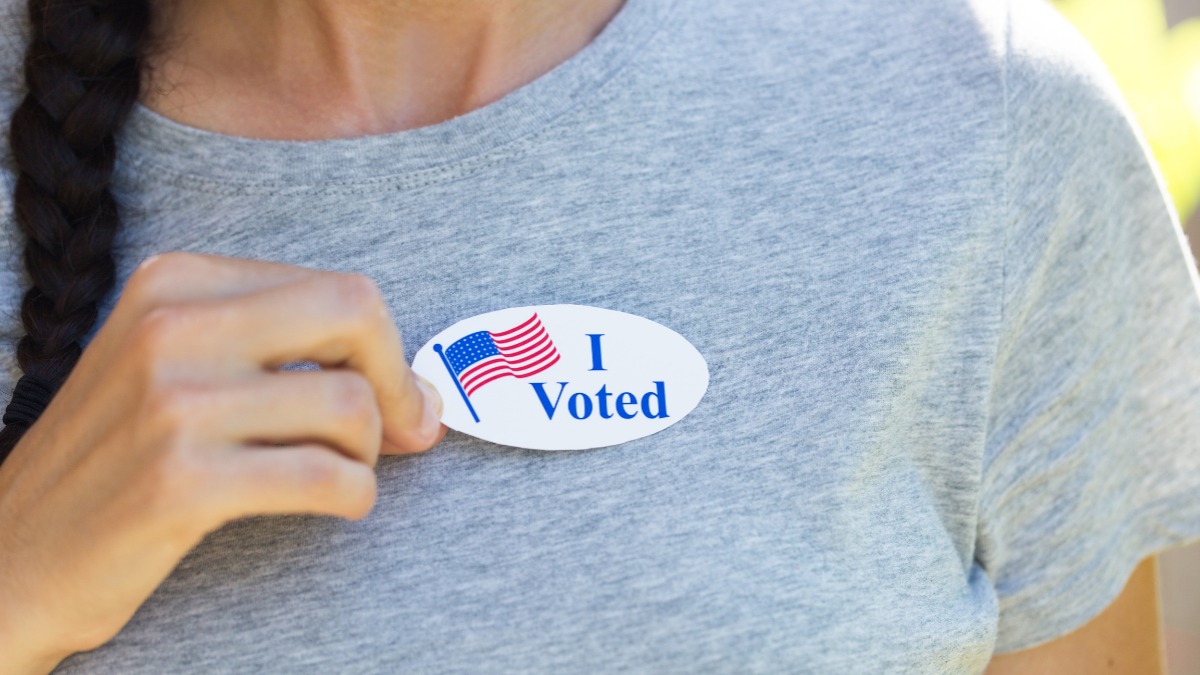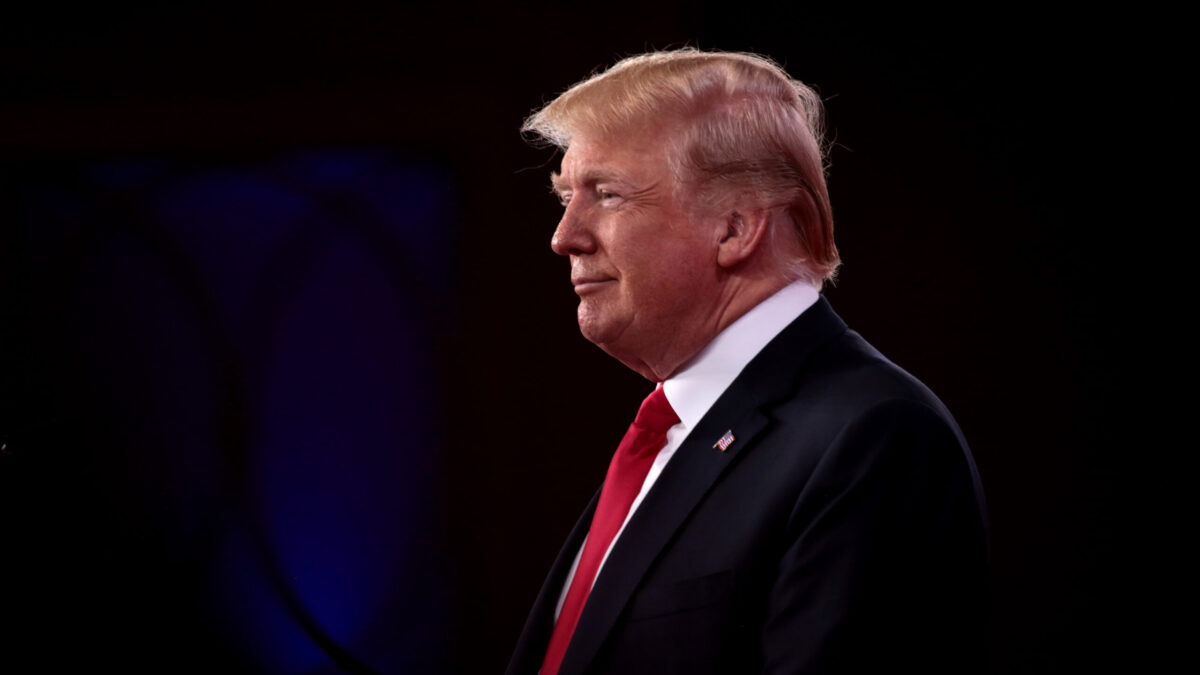Pennsylvania State Rep. Dawn Keefer has become the go-to legislator on election law over her four terms in office. The York County Republican with more than 20 years of public- and private-sector experience brings a passion to election integrity issues that’s unfortunately all too rare in politics.
“I have personally dug into this issue. I have colleagues come up to me all the time and ask me about election laws,” Keefer said in an interview this week. “I know how it should be done, and how it is actually being done.”
“I’m just trying to get [officials] to follow the laws in the first place.”
So it should come as no surprise that Keefer, who serves as chairwoman of the Pennsylvania State Freedom Caucus, is leading the charge against President Joe Biden’s executive order turning federal agencies into a get-out-the-vote army for his re-election.
‘The Most Important Election Integrity Lawsuit’
Keefer and her 26 legislative colleagues have sued the Biden administration, Pennsylvania leftist Gov. Josh Shapiro, and several state officials in federal court. They seek an injunction on Biden’s fiat that commands all federal “departments and agencies” to “partner” with state, local, tribal, and territorial election officials on voter registration and other GOTV initiatives.
Critics of the intrusion of federal powers call it “Bidenbucks,” a nod to Zuckerbucks, the piles of private donations that Facebook founder Mark Zuckerberg dropped on local election offices. Biden claims his order is all about promoting the “exercise of the right to vote” and eliminating “discrimination and other barriers to voting.” Such lofty-sounding goals get lost in the implementation of the plan, created and apparently assisted by leftist groups selected by the White House to target traditionally Democrat voters.
Keefer and the Freedom Caucus argue that’s not the business of the federal government. They assert the constitutional rights of states under the Elections and Electors clauses to operate elections without federal meddling. “[A]ll agency action in conformity with [EO] 14019 is without congressional delegation or funding, and conducted merely by executive fiat,” the lawsuit asserts.
Stewart Whitson, the legal director at the Foundation for Government Accountability, has called the federal case “the most important election integrity lawsuit in the country.”
“The Pennsylvania Freedom Caucus is leading a critical battle against the Biden administration’s ongoing effort to turn the federal bureaucracy into a get-out-the-vote machine for the Left,” Whitson told The Federalist. “Their lawsuit should serve as a model for legislators around the country who recognize the serious threat Bidenbucks poses to the integrity of their state elections,”
But the legal battle has hit an expected snag.
A Question of Standing
Last month, a federal judge dismissed the lawsuit brought by the lawmakers, at the request of the state and the Biden administration. Middle Pennsylvania District Court Judge Jennifer P. Wilson, a Donald Trump appointee, granted the motions to dismiss because of the “Plaintiffs’ lack of standing to raise the claims at issue.” Wilson cited rulings from the U.S. Supreme Court and the U.S. 3rd Circuit Court of Appeals that found “individual legislators did not have standing to bring a challenge to an action that allegedly injured the legislature as a whole.”
“…Plaintiffs have alleged only an institutional injury resulting from ‘a general loss of legislative power,’” the judge wrote. “A vague, generalized allegation that elections, generally, will be undermined, is not the type of case or controversy that this court may rule on under Article III.”
But there’s nothing vague or generalized about the effects of Biden’s voter registration executive order that serves as a federal government-funded GOTV campaign for Democrats.
Keefer and the caucus are taking their case to the U.S. Supreme Court. Their attorney, Erick Kaardal, tells The Federalist the filing with the high court is expected any day. He said his clients want the high court to rule on the standing questions because the law is unsettled. Should the Supreme Court decide the standing claim in the Freedom Caucus’ favor, the case would go back to the lower court for a ruling on the merits.
“Our intention is to do every last thing we can to drive this case forward and get the courts to weigh in on this issue,” Keefer said.
Seeds of ‘Chaos and Confusion’
The conservative lawmaker was elected to serve the Keystone State’s 92nd Legislative District. She’s been fighting for election integrity ever since.
In Pennsylvania, that’s no small battle. Lawmakers are still dealing with the messes made by Democrat-appointed secretaries of the Commonwealth, including a flurry of guidance statements to local elections officials in the days preceding the controversial 2020 election.
“That was sowing chaos and confusion,” Keefer recalled of the unprecedented time.
As a powerful swing state, Pennsylvania found itself in the middle of myriad election integrity challenges. The problems persist.
Lawmakers in 2021 held several hearings on election laws to get a handle on the overwhelming number of codes and directives. Keefer said some of the laws conflict, including the language about what constitutes the size of a precinct. In one section, it’s 1,200 voters. In another it’s 800.
But there are counties with thousands in a precinct, Keefer said. A review found 62 counties exceeded a state recommendation on precinct sizes. Caps are supposed to prevent long lines on election day.
Then there are the legal challenges to Pennsylvania’s Act 77, a law authorizing no-excuse mass mail-in balloting that Keefer said “started out well-intentioned but quickly went off the rails.” In August 2022, the left-led Pennsylvania Supreme Court upheld the law, overturning a lower court’s decision that found Act 77 unconstitutional. The commonwealth’s constitution, after all, does require voters to cast their ballots at their polling place unless they have an acceptable reason not to.
Keefer wants Pennsylvania to join a growing list of states to leave the Electronic Registration Information (ERIC), founded by leftist activist David Becker. A report from the Public Interest Legal Foundation exposed ERIC’s zeal to target for voter registration tens of thousands of ineligible individuals — including the deceased — as “Eligible but Unregistered” in Virginia. Such election integrity concerns have given lawmakers like Keefer understandable pause.
The root of the problem, Keefer says, is that the executive branch and its vast bureaucracies have usurped the legislature and the law. Too many times, she acknowledges, lawmakers have abdicated their authority to bureaucrats to avoid responsibility. That’s why Keefer has been a vocal proponent and primary sponsor of the Regulatory Review Act to reign in out-of-control regulators.
The legislator says there is much to be concerned about on the election integrity front. She said too many good reforms have been stymied.
“We’ve done very little to give the voters confidence, in my opinion,” Keefer said.
As to the lawsuit against Bidenbucks, Keefer said it’s “monumental” in its drive to answer the question or lawmaker standing.
“It’s a critical thing for the courts to answer before this election so that we know there is actual due process,” she said. “As an elected official, we have those constitutionally appropriated rights … This not only impacts Pennsylvania, it impacts all other states.”









